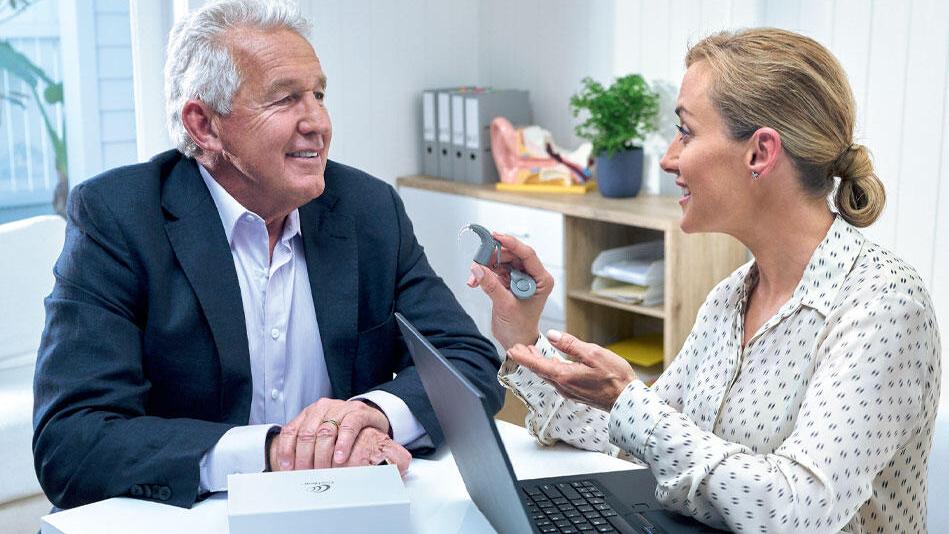Nucleus® Implant System reliability
When choosing a cochlear implant, you want to trust that you are choosing the best hearing solution for today and for the future. That’s why reliability is so important.

What you will find on this page
- Learn why implant reliability is important
- Discover why Cochlear™ Nucleus® Implants are the most reliable today for both adults and children1-4
- Learn about Nucleus® Sound Processor reliability
Reliability you can count on
Cochlear™ Nucleus® Implants are the most reliable in the industry.1-3 Along with hearing performance, that’s a key reason why Cochlear is the most chosen1-3 hearing implant company. With more than 600,000 registered Nucleus Implants worldwide,1 no other company can match our record for implant reliability.*
We meet and report against independent global standards for implant reliability, publishing data of every implant generation, past and present.1
Cochlear Nucleus Sound Processor reliability
The Nucleus Sound Processors are built to be very durable and the reliability ratings support this. Sound processor reliability is measured by the number of sound processors that are returned over a period of time compared to the sound processors sold over that same time period - Failed Component Return Rate or FCRR. These returns can be due to mechanical, electrical, moisture or damaged/unknown malfunctions. The lower the number, the better.
- Nucleus 8 Sound Processor 0.3% FCRR over 24 months1
- Kanso® 2 Sound Processor 0.2% FCRR over 24 months. 1
Why reliability matters
The world's first pediatric recipient, Holly Taylor, has relied on her Cochlear Nucleus Implant for over 30 years. Discover why she says, 'I choose quality. I choose Cochlear.'
Cochlear Nucleus System reliability
Review our Nucleus Implant reliability report using the European Consensus Statement, International Classification of Reliability & ISO 5841-2 standards.
To review the ANSI/AAMI CI86 Standard Reliability Data for Cochlear Implants and Sound Processors, please click here. For more information outlining the difference between the reports, click here.
Disclaimer
Please seek advice from your health professional about treatments for hearing loss. Outcomes may vary, and your health professional will advise you about the factors which could affect your outcome. Always read the instructions for use. Not all products are available in all countries. Please contact your local Cochlear representative for product information.
Views expressed are those of the individual. Consult your health professional to determine if you are a candidate for Cochlear technology.
For a full list of Cochlear’s trademarks, please visit our Terms of Use page.
*Based on comparable implant generations released by Cochlear, MED-EL and Advanced Bionics using each manufacturer’s first published CSP data at 7 and 15 years.
~Holly is an immediate family member of a former employee of Cochlear Limited.
References
- Cochlear Limited. D2325238 V1 2025-04. Cochlear Nucleus Reliability Report (Simplified) Volume 23, December 2024.
- Advanced Bionics Reliability Report July 2024. 028-Q048-02 Rev F. Advanced Bionics AG and affiliates.; 2024.
- MED-EL Cochlear Implant Systems Reliability Report April 2024. M00815 r4.0. MED-EL Medical Electronics.; 2024.
- European Consensus Statement on Cochlear Implant Failures and Explantations. Otol Neurotol. 2005 Nov;26(6):1097-9.






